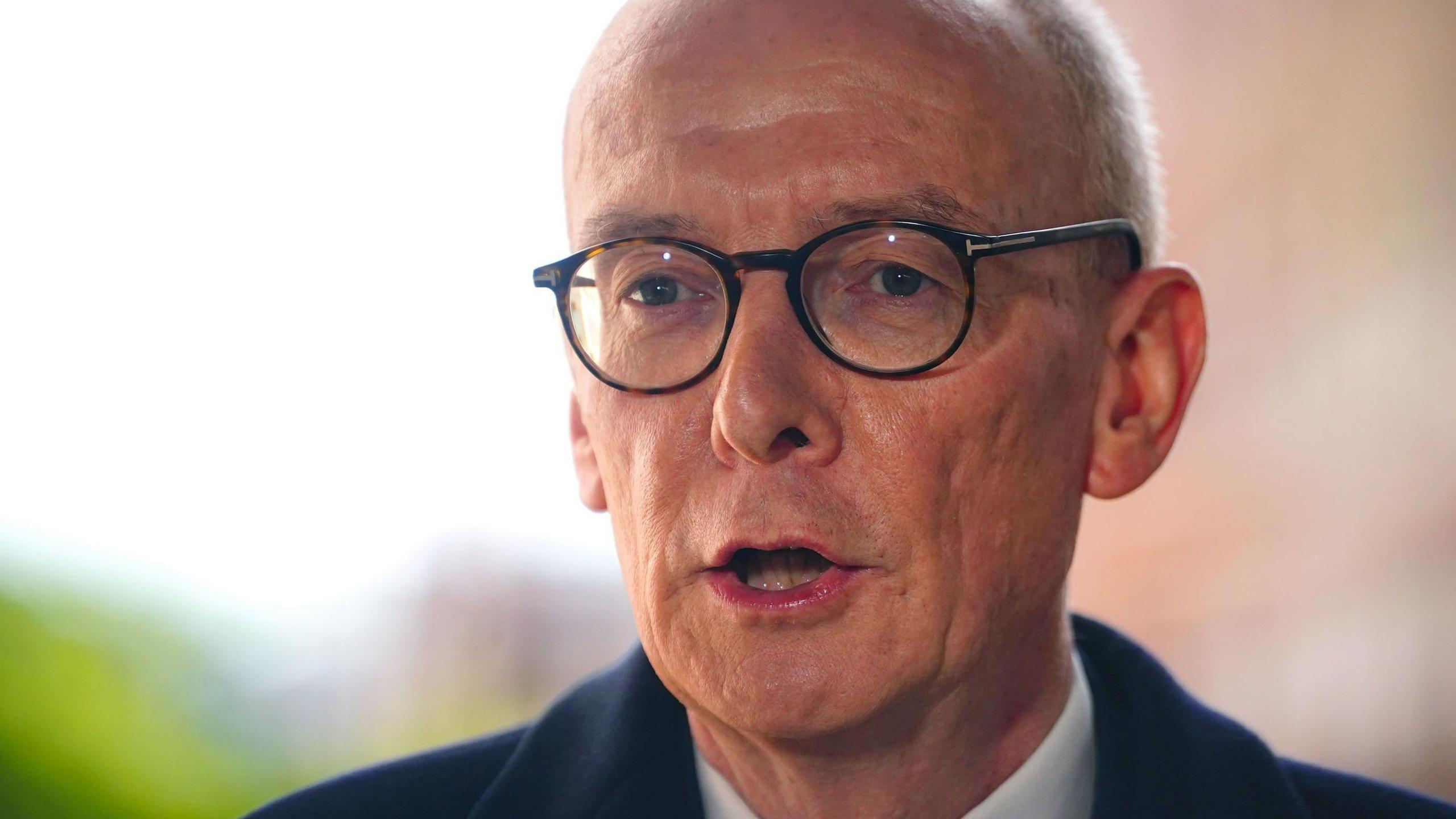Welfare reform 'must happen', minister says

- Published
Reform of the welfare system "must happen", the Work and Pensions Secretary, Pat McFadden, has told the BBC.
Speaking two weeks after taking over the welfare brief, he vowed to press ahead with changes to ensure people get the help they need and to address the rising cost of benefits.
In June, the government scrapped a flagship policy that would have cut nearly £5bn off the disability and health-related benefits bill, in order to avoid a humiliating defeat at the hands of Labour MPs.
The government says tens of thousands of people on sickness benefits, who currently have no requirement to look for a job, are to be offered skills and employment support to help get them back into work.
The pledge by McFadden comes after the government U-turned on proposed changes to personal independence payments (Pip) and the health element of universal credit.
The reforms had planned to save about £5bn a year by 2029-30, but the scrapping of them has added to the pressure on the chancellor ahead of November's Budget, with some analysts estimating she will need to raise £20bn-£30bn through either tax rises or spending cuts to meet her self-imposed borrowing rules.
After the government abandoned plans to tighten eligibility for Pips, it set up a review of the payments by disability minister Sir Stephen Timms.
His report will not be ready for another year, but McFadden pushed back against the idea that reform had come to a halt until then.
''Absolutely not. Welfare reform is happening all the time. Anyone who looks at the current system shouldn't conclude that the thing to do is to circle the wagons around it,'' he said.
He also did not rule out tightening up eligibility for universal credit or removing entitlement for health-related universal credit payments to those under the age of 22.
''Look, I'm not ruling anything out. Welfare reform is really important. At the moment this system is unhealthy for people and in the long run is pushing up the benefits bill because we're not getting the help to people who could work," he added.
The scale of the challenge is daunting. About 3.7 million people of working age receive health-related benefits. The independent Office for Budget Responsibility forecasts that the bill for health and disability benefits will reach £100bn by 2030.
McFadden spoke to the BBC from a Job Centre Plus in Barking, East London. There he met four women who spoke movingly about how traumatic events in their lives had led to ill health and several years on sickness benefits. All had been assigned a specialist work coach who they said had helped give them confidence.
Faiza described how domestic violence had led to depression and anxiety and a feeling she was "finished". Hana, who trembled as she spoke, said that her body had "shutdown" after the collapse of her marriage and several surgeries.
The women's names have been changed to protect their identities.
All said they wanted to work, but under the current system they are under no obligation to engage with a job centre.
McFadden said the system had created a "binary divide" which separated people into fit for work and not fit for work in an "unhealthy" way.
He said 1,000 specially trained job centre staff would offer voluntary support to those on sickness benefits.
The government says that work coaches – known as Pathways to Work advisers – are now based in every job centre in England, Wales, and Scotland.
"We've reallocated support to people who've been away from the labour market for a long time, who've been, frankly, signed off, paid benefits and untouched for years. That's wrong," he said.
Get in touch
Have you been affected by the issues raised on this story?